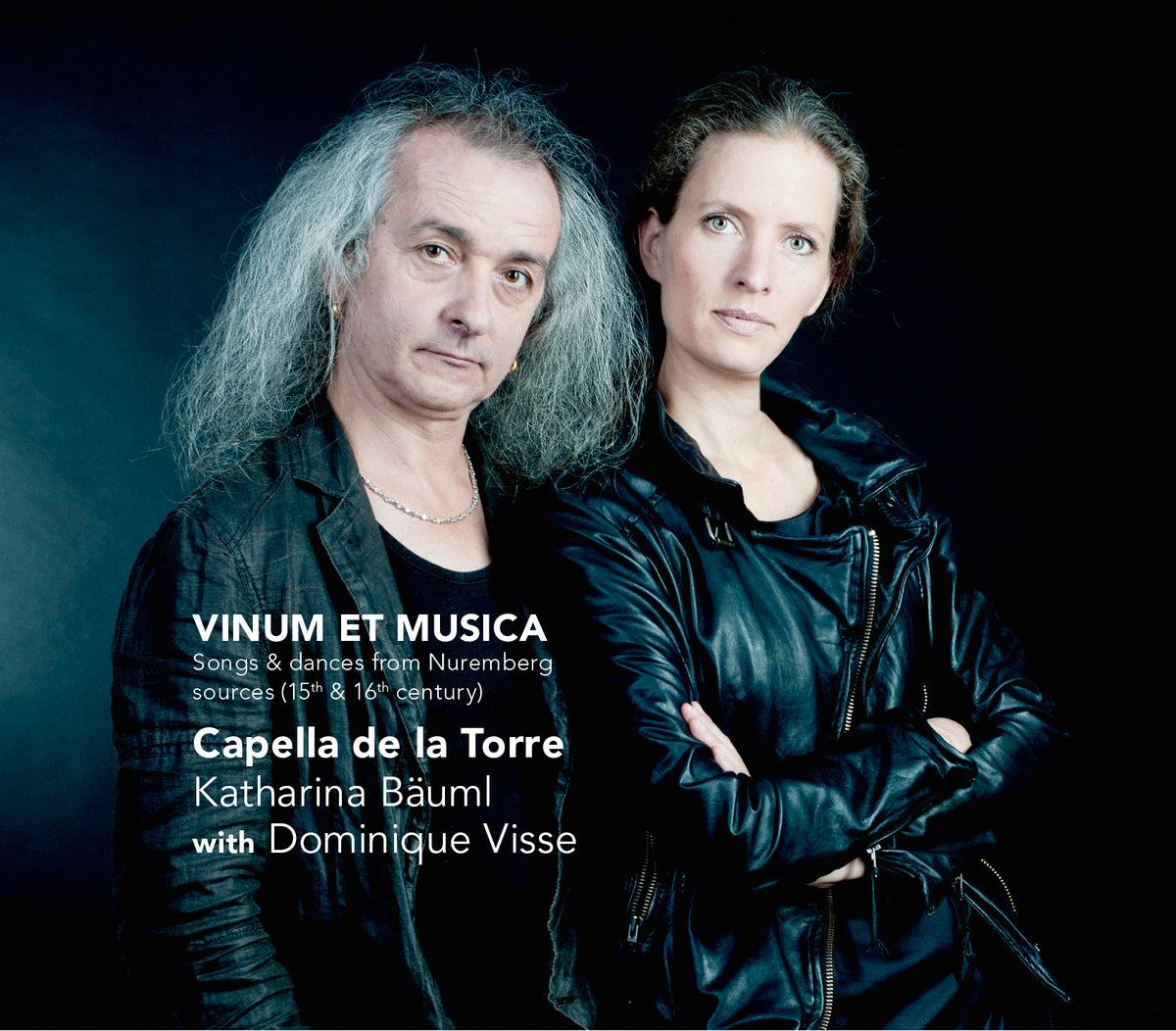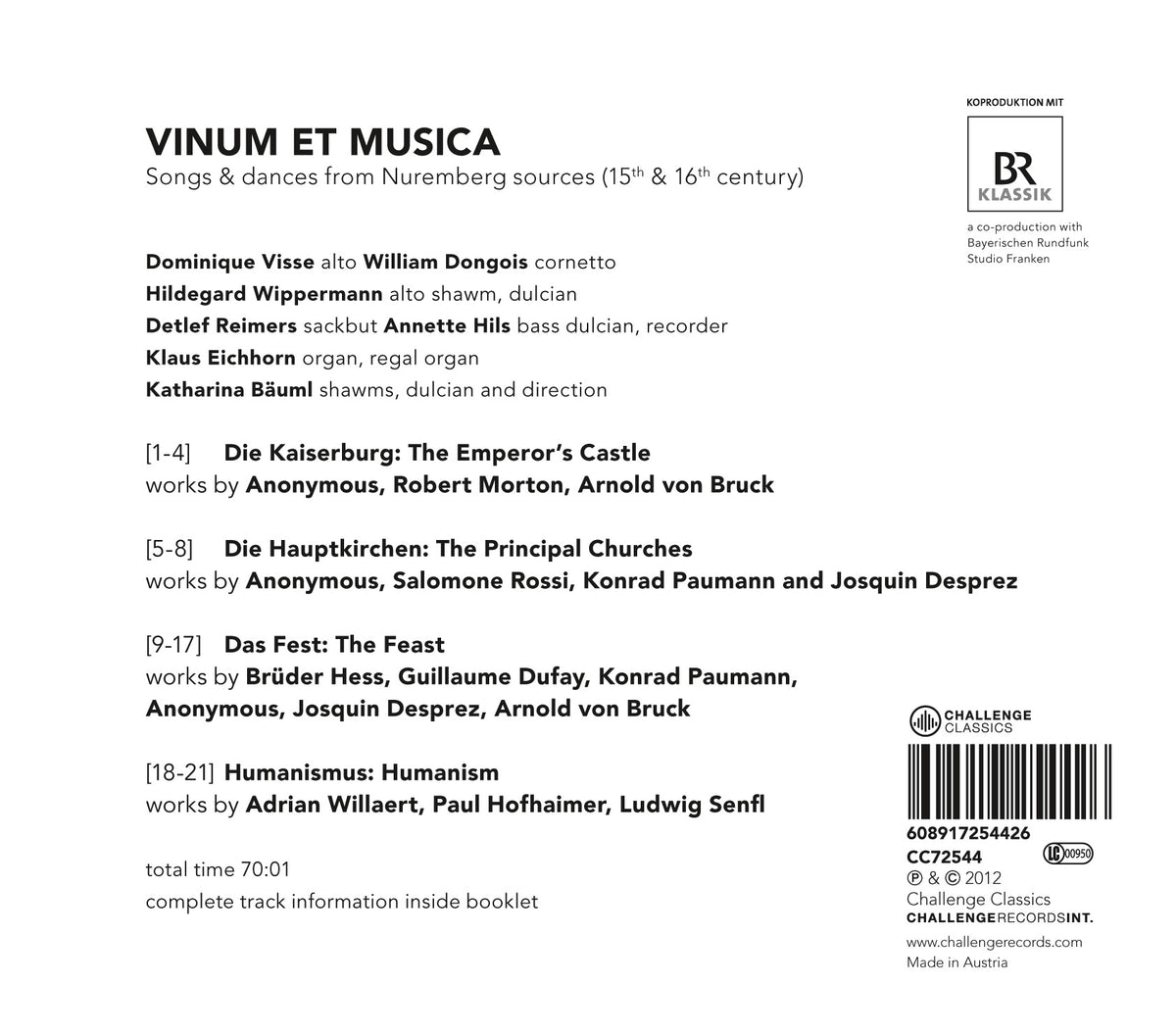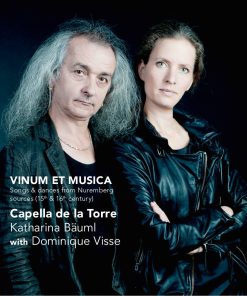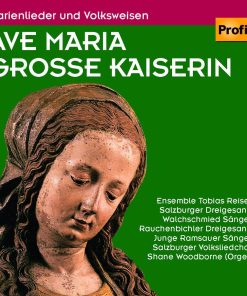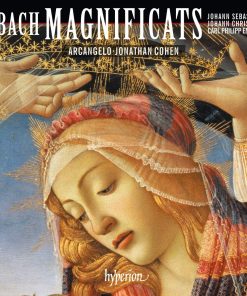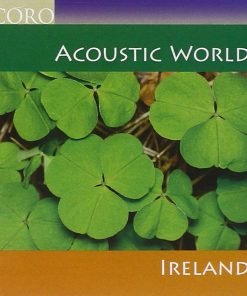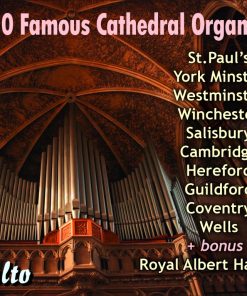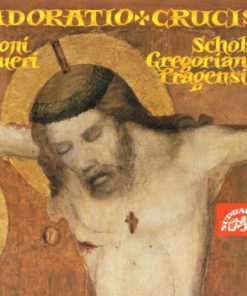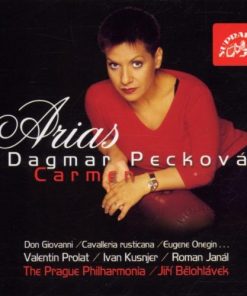Vinum et Musica – Songs & dances from Nuremberg sources (15th & 16th century) – Capella de la Torre, Dominique Visse CHALLENGE
$ 2,99 $ 1,79

Five hundred years ago no one would have had to argue long about the image and significance of Nuremberg. The city was the intersection of numerous trade routes, housed the imperial regalia, was the germ cell of German humanism. A musical tour through what was then the centre of Europe –Dominique Visse and the Capella della Torre are embarking on no less a venture on this CD. They takes us back to an epoch around 1500, a date always regarded as the heyday of the free imperial city. A guided tour might have started then (as now) up at the Kaiserburg, Nuremberg Castle, the emblem of Nuremberg. Actually a relic of the Early Middle Ages, the castle was still used for military purposes until the Thirty Years War. Probably there were quite a few mercenaries in it humming the song L’homme armé, one of the most popular melodies ever of early modern times, heard here in what is possibly the earliest version by Robert Morton. It warns of the “armed man” and calls on men to don their armour. At the same time, Nuremberg Castle was also residence until 1571 of all kings and emperors of the Holy Roman Empire when they stopped on their itineraries in “Noris” (an allegorical name for the city and its region). The state motet printed in Nuremberg Fortitudo Dei regnantis in praise of the Polish king Sigismund I was composed to mark this.
The musical tour goes on down from the castle to the spacious Marktplatz and further, Visse and his Capella della Torre take the listener by the hand…
The ensemble of the Capella de la Torre corresponds more or less exactly to that of the Nuremberg town pipers of the era: shawm, bombard and bass, augmented with trombone and cornett (zink). Documented for the first time in 1384, the town pipers played at church services, municipal council sessions, at weddings and carnival processions and became so famous that in the sixteenth century they represented Worms and Bamberg as well as Nuremberg at the annual ratification of the tariff and customs privileges in Frankfurt.

01. Fanfare 01:42
02. L’Homme armé à 4 01:17
03. Fortitudo Dei regnantis à 6 03:17
04. Basse Danse Aliot Nouvelle 03:13
05. Hymnus in vitam S. Sebaldi à 3 03:01
06. Kaddish à 5 06:25
07. Benedicite Almechtiger Gott 02:18
08. Ave Maria a 6 05:54
09. Tanz/Nachtanz à 5 02:23
10. Se la face ay pale à 3 03:29
11. Se la phase pale 02:06
12. Ich spring an diesem Ringe 03:15
13. Salve Regina prima pars 06:28
14. So trinken wir alle à 5 02:07
15. Passamezzo 04:13
16. Dulces exuviae 04:46
17. Exegi monumentum aere perennius 06:23
18. Fortuna – nasci, pati, mori 02:14
19. Vecchie Letrose 02:25
Fast Shipping and Professional Packing
Due to our longstanding partnership with UPS FedEx DHL and other leading international carriers, we are able to provide a range of shipping options. Our warehouse staff are highly trained to pack your goods exactly according to the specifications that we supply. Your goods will undergo a thorough examination and will be safely packaged prior to being sent out. Everyday we deliver hundreds of packages to our customers from all over the world. This is an indication of our dedication to being the largest online retailer worldwide. Warehouses and distribution centers can be located in Europe as well as the USA.
Orders with more than 1 item are assigned processing periods for each item.
Before shipment, all ordered products will be thoroughly inspected. Today, most orders will be shipped within 48 hours. The estimated delivery time is between 3-7 days.
Returns
The stock is constantly changing. It's not entirely managed by us since we are involved with multiple parties such as the factory and our storage. The actual stock can fluctuate at any time. Please understand it may happen that your order will be out of stock when the order is placed.
Our policy is valid for 30 days. If you haven't received your product within 30 days, we're not able to issue either a return or exchange.
You are able to return a product if it is unused and in the same condition when you received it. It must also still remain in the original packaging.
Related products
MUSIC CD
MUSIC CD
MUSIC CD
